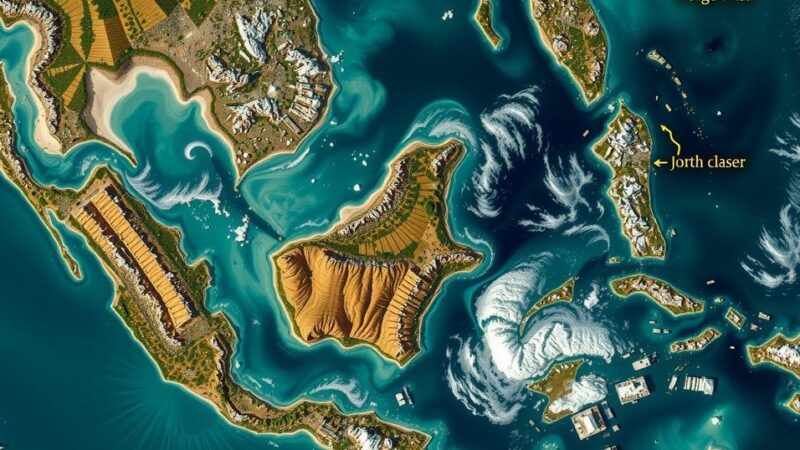Tropical Cyclone Chido is expected to strike Pemba, Mozambique, on December 15 with heavy rainfall and winds exceeding 120 km/h. Approximately 1.7 million individuals are at risk, with Cabo Delgado being the most vulnerable region. Urban flooding is a significant concern, especially in Pemba City, and the ongoing cholera outbreak may be exacerbated by the cyclone.
Tropical Cyclone Chido is anticipated to make landfall in Pemba, Mozambique, during the early hours of Sunday, December 15, with an intensity classified as an Intense Tropical Cyclone. Some northern provinces, especially Cabo Delgado and Nampula, along with Niassa, Tete, and to a lesser extent, Zambezia, are projected to be heavily affected. The cyclone will bring heavy rainfall, with forecasts suggesting accumulations of up to 200mm over 24 hours, accompanied by winds reaching speeds of up to 120 km/h. This cyclone is expected to match the intensity of previous storms such as Cyclones Gombe and Freddy, which affected the region in recent years.
In recent years, Mozambique has experienced a series of devastating tropical cyclones. These storms have resulted in significant loss of life and property, highlighting the vulnerability of the region to climate-related disasters. The Disaster Analysis and Mapping (ADAM) system managed by the WFP has indicated that approximately 1.7 million individuals are at risk due to Cyclone Chido, emphasizing the widespread threat it poses to coastal and inland communities.
Cyclone Chido presents a severe threat to northern Mozambique, particularly impacting Cabo Delgado and Nampula. With forecasts of substantial rainfall and strong winds, there is a considerable risk of urban flooding, especially in at-risk neighborhoods of Pemba City, and additional challenges regarding the ongoing cholera outbreak may worsen due to the cyclone’s impact. Timely monitoring and response strategies will be critical in mitigating the cyclone’s adverse effects on the population.
Original Source: reliefweb.int





